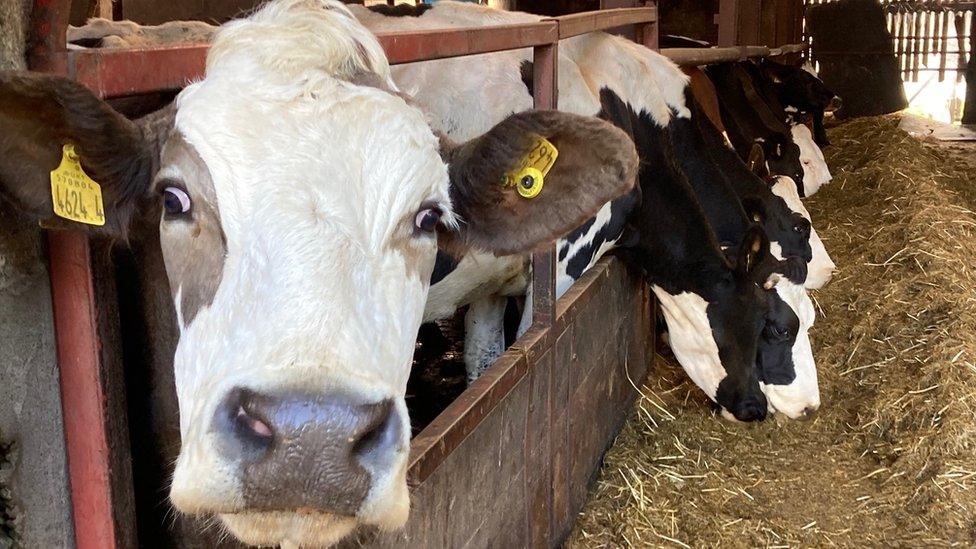Climate change: NI will fall behind on targets without legislation
- Published
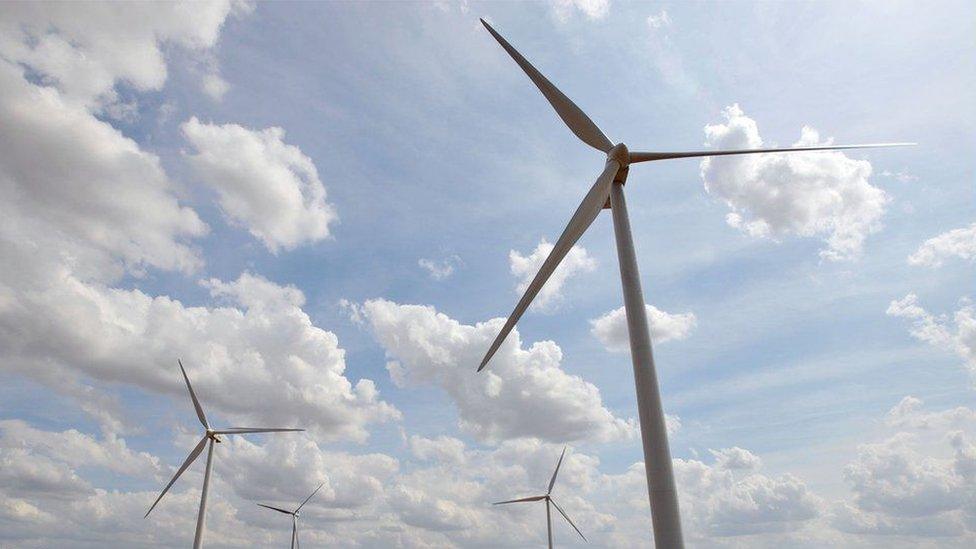
Northern Ireland will fall behind on UK climate targets unless legislation is passed on climate change, according to the UK's independent climate watchdog.
Chris Stark the chief executive of the Committee on Climate Change (CCC) said having legal targets for climate change is crucial.
There are currently two climate bills making their way through the NI Assembly, one from Agriculture Minister Edwin Poots.
Both have attracted criticism.
Mr Stark said there were "no plans to revisit the framework target for the UK" but that, with Northern Ireland, "there's clearly a gap because it doesn't have the legislative framework in place to tackle climate change".
"I think it's going to be an interesting moment coming up for Northern Irish politics on climate.
"But the main gap is not about the levels of the targets, it's the fact Northern Ireland doesn't have a legislative framework in place."
Two climate bills
The two climate bills making their way through the assembly differ on their targets for reducing emission and on the question of oversight.
A private members bill taken forward by the Green Party's Claire Bailey MLA has a target of reaching net zero by 2045.
It received criticism for potentially putting too much pressure on agriculture as the biggest emitter.
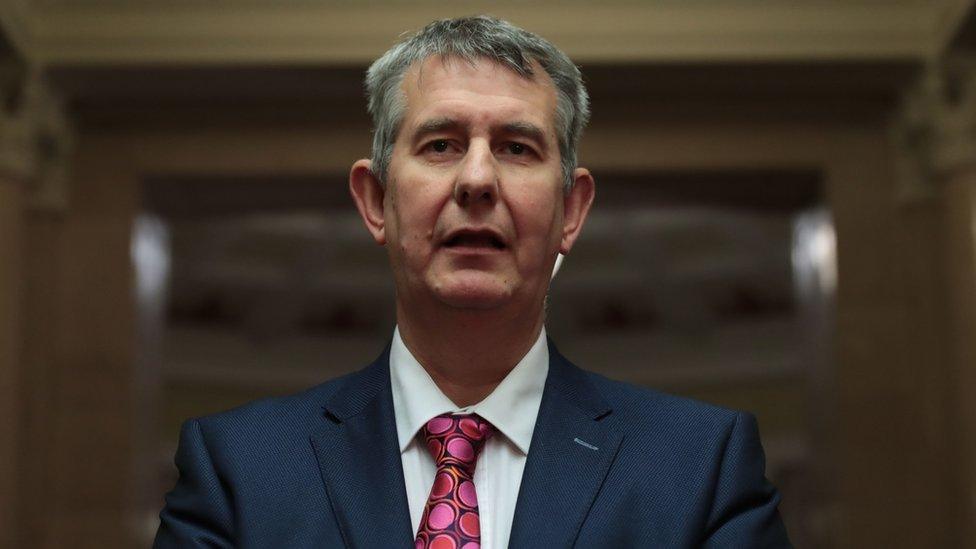
Edwin Poots said the framework of his climate bill was about ensuring the future of farms
Another bill from Agriculture Minister Edwin Poots calls for an 82% reduction in emissions by 2050.
It has been criticised for not being ambitious enough.
In the latest exchange between the two sides, Ms Bailey offered to incorporate elements from Mr Poots' bill on carbon digesting and "non-regression" - which refers to not reducing environmental protections that were in place pre-Brexit.
Mr Poots said the first bill would damage the agri-food industry and cost "a billion pounds a year".
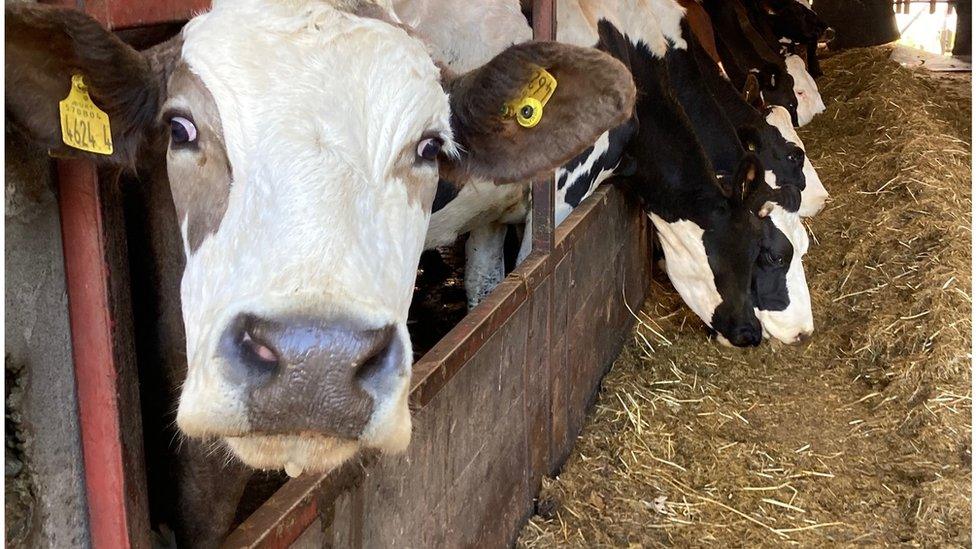
The agricultural sector is a significant part of the economy in Northern Ireland
Chris Stark said that Northern Ireland is lagging behind other parts of the UK.
"Northern Ireland needs to go on this journey to reducing emission as quickly as possible," he said.
"We've seen in Wales and Scotland how important it is that they have their own legislative framework, their own acts of Parliament for climate change.
"It's driving a change in how they view the challenge on housing, driving a change in how they view farming and energy and all the other aspects of this transition.
"Unless you have the framework in place you aren't making the right trade-offs or seeing the decisions in the right way. It's really important Northern Ireland has that framework."
Advised to halve agriculture emissions
For Northern Ireland to reach net zero big changes will be needed, according to Mr Stark.
"There's no technical barrier to Northern Ireland reaching net-zero emissions," he said.
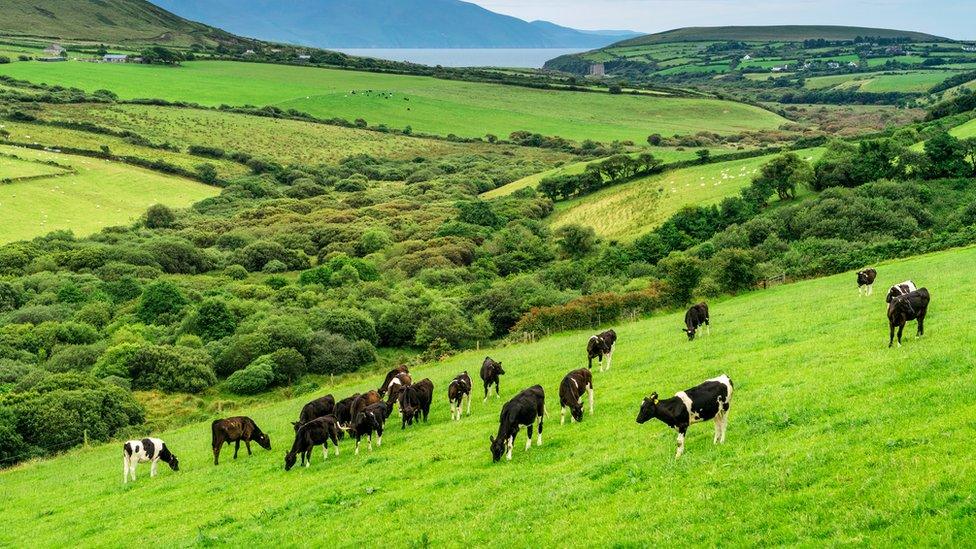
Mr Stark is advising Northern Ireland half its agriculture emissions between now at 2050
"What the Climate Change Committee has looked at is a plan for the whole of the UK to get to net zero by 2050.
"It means that if Northern Ireland wants to go harder, to go further than the 82% reduction we've advised, then it'll need to reduce those remaining sources of emission even further than other parts of the UK, and in particular the emissions from agriculture which is such a big part of the Northern Ireland economy.
"In our advice, we are advising a halving of agricultural emissions between now and 2050 in Northern Ireland.
"If you want to go further than that - that points very firmly to Northern Ireland having a smaller agriculture sector. And that's a political choice.
"If that's the way politicians want to go then of course you can go further then the 82% but it's not the advice we would give because we are trying to maintain the economy in a similar position to where we are now, but in a net-zero world."
- Published12 November 2021
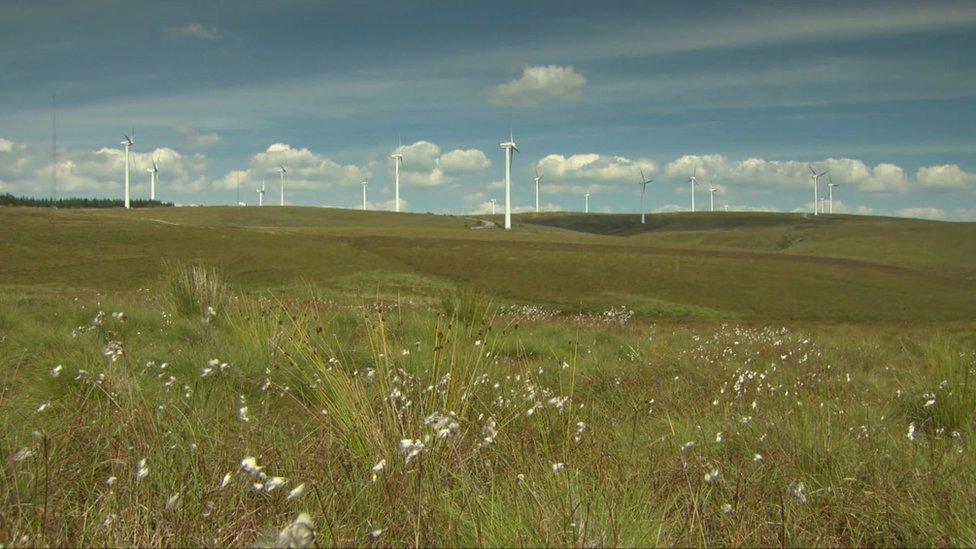
- Published30 October 2021
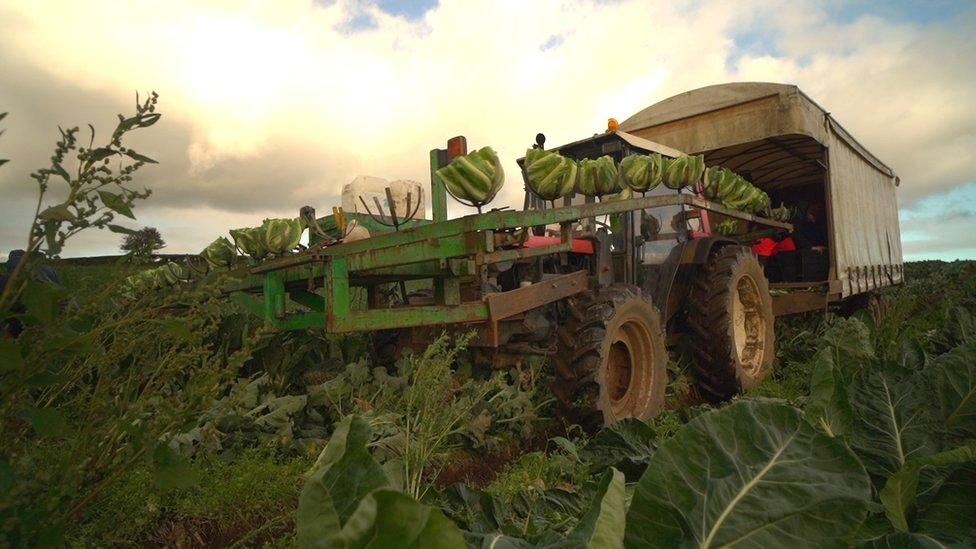
- Published2 November 2021
